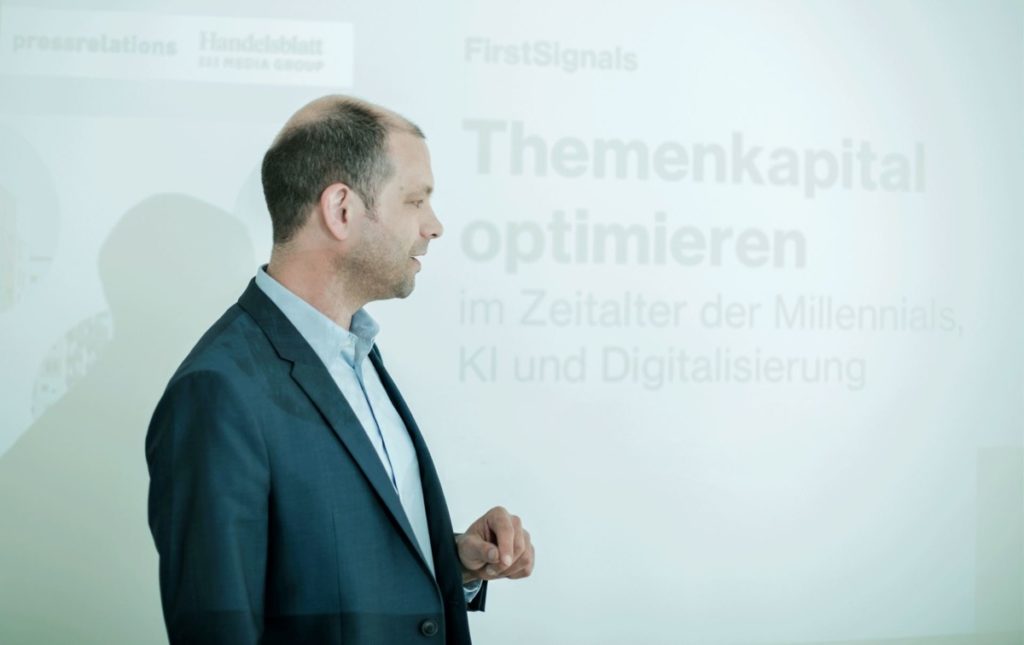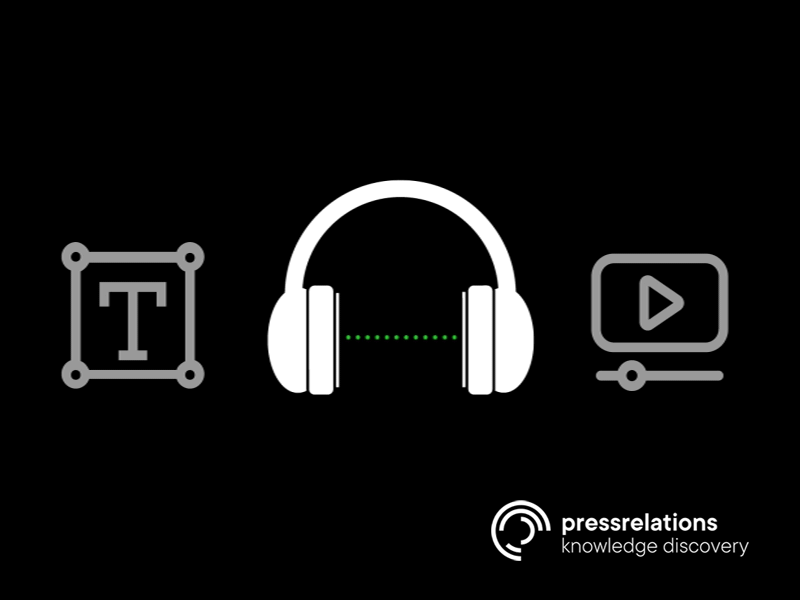AI, climate change, e-mobility, diversity, new nutritional and lifestyle habits of the YZ generation – until recently, all these topics were considered disruptive. However, now we can see what disruption really looks like, thanks to the coronavirus pandemic.
Strategies that were previously effective are experiencing a sudden and radical change. Many planned campaigns, product launches, marketing and communication concepts, even entire business models, became obsolete in just a single day.
A CHANCE FOR NEW OPPORTUNITIES
When even basic structures change dramatically in a short time, flanked by a comprehensive feeling of insecurity, the first reaction is fear, rush, apathy, and resignation, even in a professional context. “In times of crisis, many managers go into panic mode and mainly deal with micromanagement such as cost-cutting and contracts” says Andreas Steinle, founder and managing director of the strategy workshop Zukunftsinstitut Workshop GmbH.
These “business issues” are of course important for the time being. But after the initial shock has been processed and the most urgent measures have been implemented, entrepreneurially-minded people quickly change their behavior. They look for solutions, they drive change and they begin to recognize new opportunities. They are particularly aware and curious in times of crisis, even more open and motivated than before. Because they do not want to go under, they want to get ahead now more than ever.
INTEREST IN CORONAVIRUS NEWS IS CONSTANT
Anyone who cultivates such an attitude in the midst of the coronavirus crisis and is at home in the world of marketing and communication thinks only one thing at the moment: How can I maintain or even increase the visibility of my company?
Unfortunately, the media hurdle on the topic is currently enormous. Between 60 and 70 percent of reports deal with the Coronavirus. And even if readers are slowly becoming a bit tired of the constant coverage, the interest in Coronavirus news is still huge, as the click figures show. At the moment, there seems to be a lack of attention for topics that do not (only) deal with Coronavirus.
TOPICS BEYOND THE CRISIS
So how can this infodemic-like perception barrier be overcome? What are people interested in when they are not busy with the Coronavirus news, their children or Netflix? And which topics, which in themselves have nothing to do with Coronavirus, are met with significantly more interest as a result of the crisis?
Martin Lindstrom from the USA, one of the most renowned marketing experts in the world, writes in a recent LinkedIn article that due to the crisis we will again turn to fundamental questions about the meaning of our lives, our relationships and our work. And while we are learning a new level of digital lifestyle, we are at the same time realizing how important the haptic experiences of our existence and personal contacts are to us and how much we miss them now.
THE SEARCH FOR MEANING BECOMES THE TOP TOPIC IN SOCIETY
A central insight can be derived from Lindstrom’s thoughts. While “Purpose” was only a main topic in the inner workings of companies until the crisis, the search for meaning is now (along with digitalization) becoming the main topic of the entire society. Communicators are thus faced with the challenge of addressing this search for meaning and, at best, accompanying it – by offering real orientation and support. The enormous influx that the leading media is experiencing in the coronavirus crisis also indicates that strong brands, in particular, have a great opportunity here: “In the search for meaning, the social contribution of brands is more in demand than ever before,” says Andre Paetzel, Head of Brand at Kienbaum Consultants. Brands now need “full transparency and credibility. For brand managers and decision-makers, this means taking the situation seriously, but without causing panic, and combining clear communication with meaningful measures”.
COMMUNICATION ON A PERSONAL LEVEL
For futurologist Steinle, the “People Issues” are the focus of attention. It is “not the time for classic PR and marketing, but rather for more personal communication – taking care of employees and customers on a human level. Expressing that you are there for each other. This will also lead to greater exposure and visibility, but that shouldn’t be the main motivation.”
Andre Paetzel sees it very similarly. “Truthfulness and a sincere interest in contributing something meaningful should be in the foreground, and anyone who isn’t currently helping to strengthen the common good has no place in the mindset. Especially at a time when the world is in shock, customers no longer want advertising and loose promises.
NO CHANCE FOR (APPARENT) SOLUTIONS
Conventionally conceived, flimsy actions and advertising messages could, therefore, break away from the awareness market, because they seem even more inappropriate, superfluous, or even annoying than before. A kind of solutionism seems equally pointless – a buzzword coined by the renowned technology expert and Harvard researcher Evgeny Morozov: (bogus) solutions in the desperate search for problems.
Fortunately, meaningful solutions, as companies visibly contribute to the common good, seem to predominate so far. Bosch has developed an antibody test in record time. Aldi and Telekom are giving away data volumes. Melitta, Playmobil, the automotive supplier DFR, and 40 percent of fashion companies produce protective masks. Tesla presented a respirator made of parts of the Model 3, Beiersdorf produces disinfectants and Jägermeister was able to generate a huge media response with its announcement to produce alcohol for disinfectants.
LONGING FOR A POSITIVE FUTURE GROWS
But in addition to ad hoc measures, now would be exactly the right time to get people excited about future topics. Because in the course of a serious crisis, the longing for a positive blueprint for the future, the famous light at the end of the tunnel, grows. Storytelling that brings this light to shine through positive, exciting and above all meaningful future topics would be an equally honorable and rewarding goal for communicators at the moment as the current contributions to the common good.
RECOGNIZE FUTURE TOPICS
For this purpose, subjects that have existed without the coronavirus now attract more interest due to it. For example, healthcare companies could report on how remote surgery and digital pills are taking the efficiency of hospitals and healing processes to a new level. One could talk about synthetic biotechnology, which uses AI to massively accelerate the discovery and development of new active ingredients. Tech companies could talk about connectedness, which is what makes AI really intelligent, or about their work on an augmented reality-based mirror world, a digital twin of our entire real world, which would offer completely new possibilities for future crisis prevention, as well as the digitalization of our healthcare system and supply logistics, among other things. In addition, countless other future topics are slumbering in the niches of reporting, including cross-sectional topics that could soon become really big, such as healthy living, healthy building and the indoors generation.
MEANINGFULNESS CREATES SECURITY
But for the time being, the question of meaning touches upon every currently conceivable storytelling. And it is no surprise that it is being repositioned on a large scale right now. For meaningfulness creates certainty and certainty creates security. After all, the feeling of security is something that suffers most in a crisis and during epochal upheavals, which is why we long for it all the more.
But the longer the COVID-19 crisis lasts, the more important the light at the end of the tunnel is, because it stands for hope and confidence, which, together with the desire for security, are now becoming our most important emotional refuges. Those who play these values in a credible, truthful, and transparent manner will be seen and heard – not only in the midst of the prevailing infodemic, but also far beyond.
Picture credits: Zach Woolf via Unsplash





